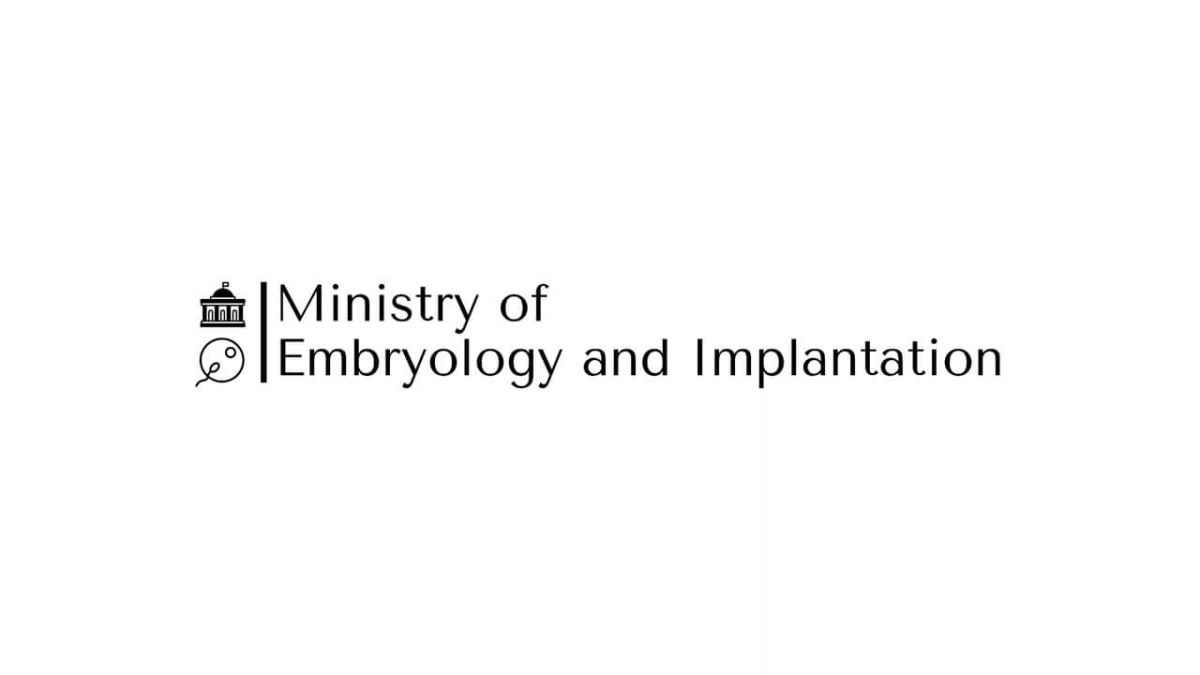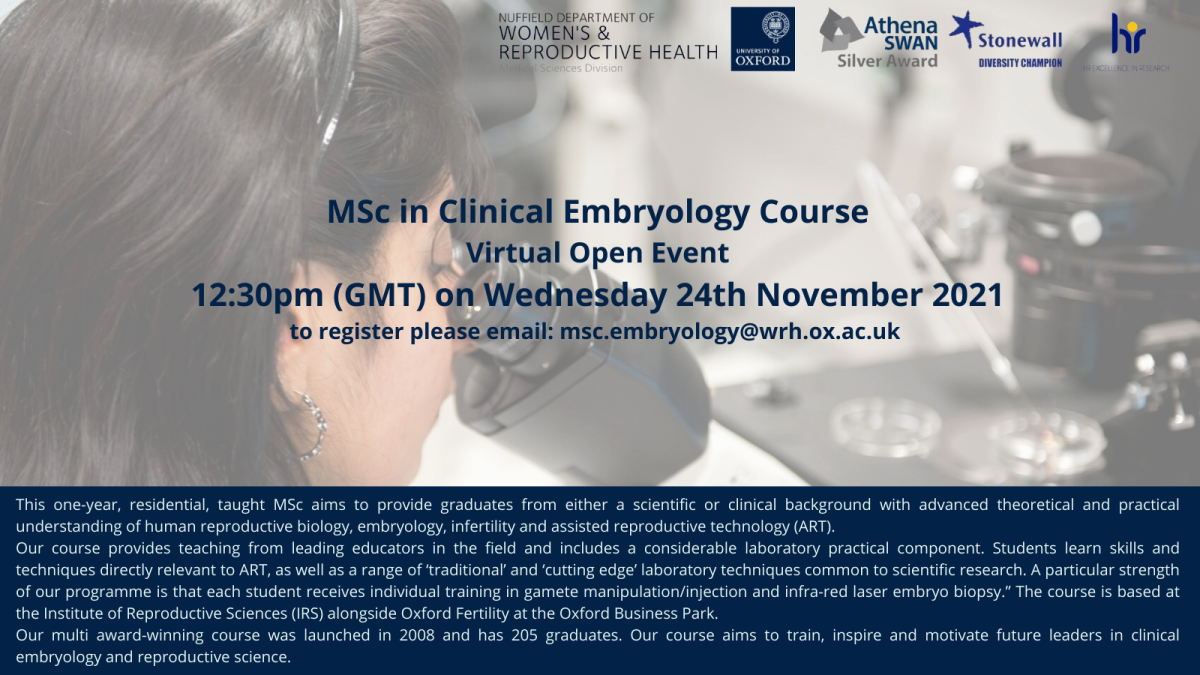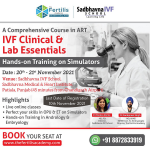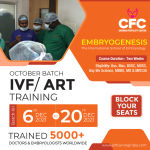
IVF NewsWebinar: MINISTRY OF EMBRYOLOGY AND IMPLANTATION
International IVF Initiative 28 November 2021

Tuesday 30th November, 2021. 3PM EST/ 8PM GMT / 9PM CET Presiding: [ Full Article ] News: Course Name: Basic and advanced clinical Andrology, IUI, Reproduction ultrasound & QA/QC.
Dr. Prof (Col) Pankaj Talwar VSM 27 November 2021
News: Course Name : IVF Lab set-up, procurement & Clinical Embryology, Embryo culture, ICSI, Cryobiology, QA/QC
Dr. Prof (Col) Pankaj Talwar VSM 27 November 2021
Webinar: THE Y CHROMOSOME
International IVF Initiative 15 November 2021

Tuesday 16th November, 2021. 3PM EST/ 8PM GMT / 9PM CET [ Full Article ] Announcement: MSc in Clinical Embryology, Virtual Open Event: Wednesday 24th November 2021, 12:30 am GMT.
Laura Rose 15 November 2021

This one-year, residential, taught MSc aims to provide graduates from either a scientific or clinical background with advanced theoretical and practical understanding of human reproductive biology, embryology, infertility and assisted reproductive technology (ART). Our course provides teaching from leading educators in the field and includes a considerable laboratory practical component. Students learn skills and techniques directly relevant to ART, as well as a range of ‘traditional’ and ‘cutting edge’ laboratory techniques common to scientific research. A particular strength of our programme is that each student receives individual training in gamete manipulation/injection and infra-red laser embryo biopsy.” The course is based at the Institute of Reproductive Sciences (IRS) alongside Oxford Fertility at the Oxford Business Park. Our multi award-winning course was launched in 2008 and has 205 graduates. Our course aims to train, inspire and motivate future leaders in clinical embryology and reproductive science. The virtual open event on Wednesday 24th November 2021, at 12:30 pm GMT (UK time) is an opprtunity for prospective students to find out more about the course and to ask questions. To register to event the virtual event email: [email protected]. [ Full Article ] News: Sperm change swimming patterns to find egg
Joseph Hamilton 15 November 2021
Research has shed light on how the chemical environment of the fallopian tubes can influence how mammalian sperm swim towards the egg. Researchers at Cornell University in Ithaca, New York, monitored the swimming activity of bovine sperm when exposed to biochemical cues from the environment. Sperm generally performed a symmetrical pattern of swimming with their flagellum (tail) and travelled in a straight line. However, exposure to agents which increased intracellular calcium, including caffeine, induced 'hyperactivation' – a state associated with asymmetrical beating of the flagellum and a circular swimming pattern. 'We think that hyperactivation modulates sperm's swimming behaviour as it ascends towards the fertilisation site… and as sperm responds to the biochemical factors present in the environment' said first author Meisam Zaferani, a graduate student in the lab of Professor Alireza Abbaspourrad. Therefore, this shift in motility, which is known to occur in the fallopian tube enables the sperm to search the area for the egg, encouraging successful fertilisation. In the study, the team used custom-made microfluidic chambers to observe sperm motility in different chemical environments. Sperm had a tendency to hug the chamber walls as they swam in a straight line using their flagellum in a symmetrical fashion, similar to how they are understood to swim in the female reproductive tract. In the presence of an influx of calcium, the flagellum was shown to switch to asymmetrical beating causing the sperm to swim in a circular swimming pattern. Authors argued this would prevent the sperm from venturing into intrauterine 'dead ends'. Our understanding of mechanisms governing sperm motility has advanced over recent years now known to include factors such as temperature gradients, fluid flow and uterine wall architecture. However, it remains to be seen what governs this intracellular rise in calcium levels in living organisms including humans, as this new evidence is solely from an artificial in vitro context. Nonetheless, as senior author Professor Abbaspourrad said, 'By understanding what determines the navigational mechanism… we may be able to use those cues to treat couples with infertility issues and select the best strategy for in vitro fertilisation'. The study is published in the Proceedings of the National Academy of Sciences. SOURCES & REFERENCES
[ Full Article ] News: Embryonic stem cells can self-destruct when defective
Beatrice Costa 15 November 2021
Insight into genetic control of human embryonic stem cell fate has offered new insight into cancer genetics and could inform future work in regenerative medicine. Scientists from Boston, Massachusetts carried out screening of key genetic networks controlling human embryonic stem cells growth and differentiation. They discovered a link between the genetic control of pluripotency and cell death in embryonic stems cells. This means that faulty embryonic stem cells have a built-in mechanism ensuring they self-destruct to avoid replication, which would affect the functioning of the developing embryo's future cells and tissues. 'Our methods allowed us to create an "atlas" of nearly every gene in the human genome and determine what its over-expression or loss does to the most fundamental first steps of human development.' Dr Kamila Naxerova, lead author of the study and principle investigator in the Centre for Systems Biology at Massachusetts General Hospital, Boston said. 'Instead of looking at genes one by one, we looked at thousands of genetic alterations at the same time to determine how they affect the proliferation of embryonic stem cells, and, subsequently, the development of the three germ layers that serve as the raw material for human tissues.' Embryonic stem cells are pluripotent and give rise to all of the cell types that make up the body and control cell growth and differentiation at the earliest stages of human embryonic development. Researchers knocked out over 18,000 genes and overexpressed 12,000 genes in order to determine their role in early embryonic development. When the researchers deleted genes known to be involved in maintaining cell pluripotency in embryonic stem cells, they were surprised to find the cells were more likely to survive, indicating that under normal circumstances pluripotency regulators also control cell death, known as apoptosis. Researchers also observed that many of the genes that regulate the formation of the three primary germ layers, the endoderm, mesoderm and ectoderm, are also known drivers of cancer growth when they are over- or under-expressed in somatic cells. 'Elucidating how human embryonic stem cell function is controlled by genetics is essential for our understanding of developmental biology and regenerative medicine,' said co-corresponding author Professor Stephen Elledge, professor of genetics and medicine at the Brigham and Harvard Medical School. 'Our study provides the most extensive examination of gene functionality in [human embryonic stem cells] to date.' Previous research has shown that human embryonic cells that display aneuploidy, where the cell has the wrong number of chromosomes, are removed from the part of the embryo that becomes the fetus and instead make up the part of the embryo that becomes the placenta. SOURCES & REFERENCES
[ Full Article ] News: Hands-on Training on Simulators
Dr. Sarabpreet Singh 06 November 2021

The Fertilis Academy and Sadhbhavna IVF School are organizing hands-on training on simulators. It will help you perfect your skills in Ovum Retrieval and Embryo Transfer. [ Full Article ] Course: ART & Embryology training program
Chennai Fertility Center and Research Institute 02 November 2021

December 2021 training batch schedule - Dec 06th, 2021 - 20th 2021 The International School of Embryology was established to offer training for clinicians in advanced reproductive technologies. Our skill and precision to all aspirants help them to know in-depth knowledge and experience. The members of our teaching faculty aim to bring doctors and embryologists to the highest level of knowledge about reproductive techniques and practical capability in the field. Our courses cover basics in Andrology, embryology, ICSI, and cryosciences (Hands-on). Limited Seats. For admission Contact 9003111598 [ Full Article ] Webinar: Webinar on Patient-Centered Care
Marijke Linssen, Life coach 27 October 2021
|